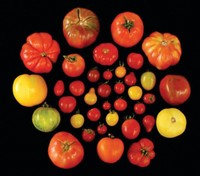Advertisement
Grab your lab coat. Let's get started
Welcome!
Welcome!
Create an account below to get 6 C&EN articles per month, receive newsletters and more - all free.
It seems this is your first time logging in online. Please enter the following information to continue.
As an ACS member you automatically get access to this site. All we need is few more details to create your reading experience.
Not you? Sign in with a different account.
Not you? Sign in with a different account.
ERROR 1
ERROR 1
ERROR 2
ERROR 2
ERROR 2
ERROR 2
ERROR 2
Password and Confirm password must match.
If you have an ACS member number, please enter it here so we can link this account to your membership. (optional)
ERROR 2
ACS values your privacy. By submitting your information, you are gaining access to C&EN and subscribing to our weekly newsletter. We use the information you provide to make your reading experience better, and we will never sell your data to third party members.
Environment
Chilling tomatoes blocks production of flavor-making enzymes
Researchers discover that cold temperatures lead to methylation of genes involved in making tomatoes tastier
by Sarah Everts
October 24, 2016
| A version of this story appeared in
Volume 94, Issue 42
Tomato lovers commonly rant about the suboptimal taste of supermarket varieties. Part of the problem is that most store-bought tomatoes have been bred to slow down softening of the fruit, which makes the tomatoes travel-hardy but also less flavorful. Now researchers are pointing to cold storage—another common feature of the global produce market—as an additional culprit for poor tomato flavor (Proc. Natl. Acad. Sci. USA 2016, DOI: 10.1073/pnas.1613910113). A team led by Harry J. Klee of the University of Florida explored the expression of tomato enzymes that convert lycopene into flavor-imparting volatile compounds. The team found that when tomatoes were stored at temperatures below 12 °C, genes involved in ripening flavor development were methylated, leading to reduced expression of those genes. In parallel, the researchers found that levels of messenger RNA coding for enzymes involved in producing flavor, including those responsible for several consumer-favorite volatiles such as isovaleraldehyde, 3-methyl-1-butanol, and 2-methyl-1-butanol, dropped when tomatoes were chilled.





Join the conversation
Contact the reporter
Submit a Letter to the Editor for publication
Engage with us on Twitter